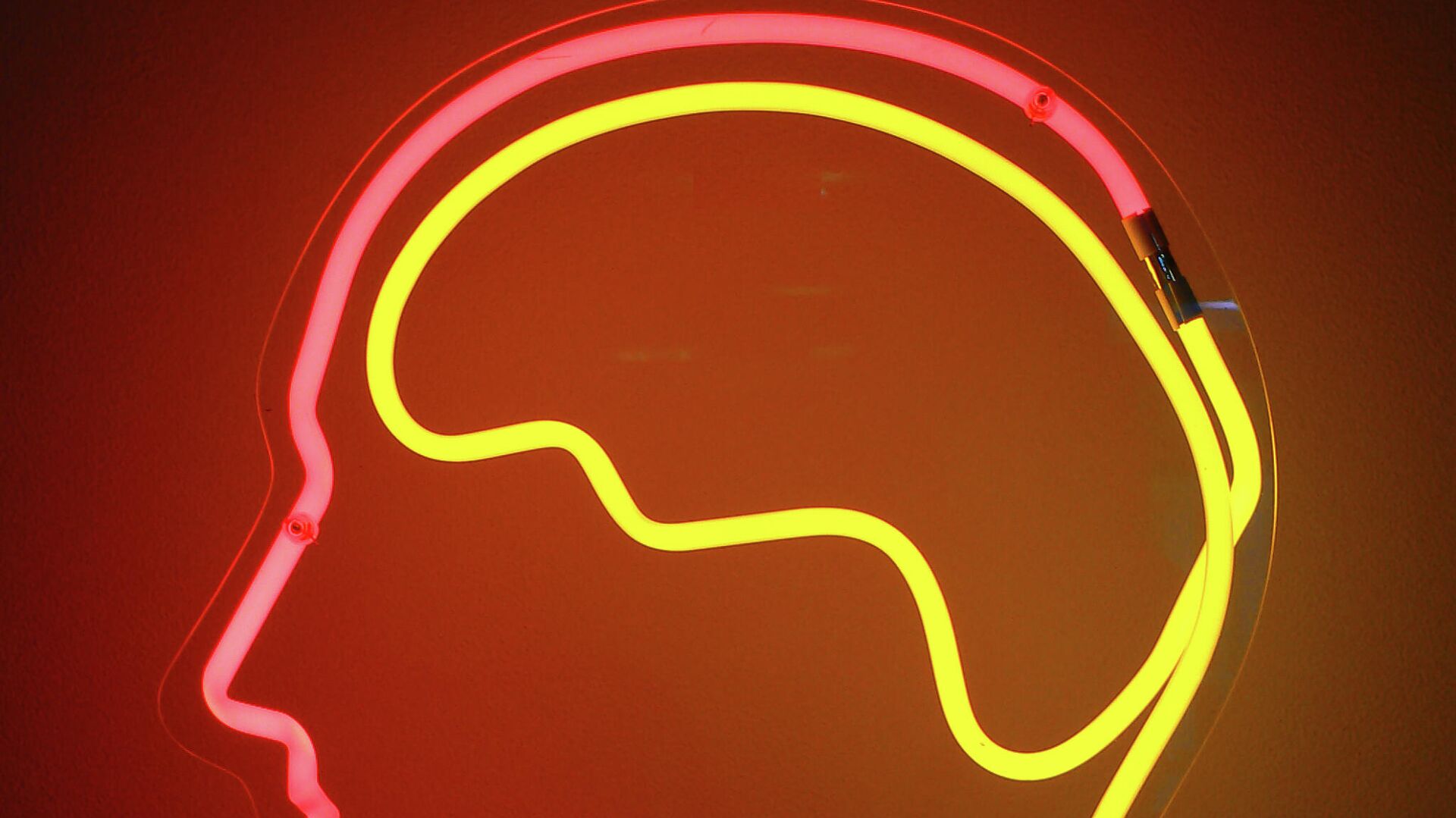https://sputnikglobe.com/20240507/alzheimers-likelihood-linked-to-genetics-says-new-study-1118301113.html
Alzheimer’s Likelihood Linked to Genetics, Says New Study
Alzheimer’s Likelihood Linked to Genetics, Says New Study
Sputnik International
As a first in medical history, researchers have identified a genetic form of Alzheimer’s disease. This means that the disease could be inherited more often than previously thought.
2024-05-07T05:32+0000
2024-05-07T05:32+0000
2024-05-07T05:32+0000
beyond politics
alzheimer's disease
alzheimer's society
science & tech
us centers for disease control (cdc)
health
mental health
disease
memory loss
mental capacity
https://cdn1.img.sputnikglobe.com/img/07e6/02/18/1093350396_0:211:2047:1362_1920x0_80_0_0_a68ec695b67da484f008dabce50fbb84.jpg
As a first in medical history, researchers have identified a genetic form of Alzheimer’s disease. This means that the disease could be inherited more often than previously thought; just 1 in 50 cases of the disease were thought to be based on familial forms.But according to a study, published on Monday in the journal Nature Medicine, 1 in 6 cases of Alzheimer’s could be considered inherited.According to the Centers for Disease Control and Prevention (CDC), Alzheimer’s disease is the most common type of dementia. It is a progressive disease beginning with mild memory loss and can possibly lead to the loss of being able to carry on a conversation or respond to one’s environment. It affects parts of the brain that control thought, memory and language.Prior to Monday's publication, scientists have been aware of a gene called APOE4 that can increase people’s risk of developing Alzheimer’s. APOE makes a protein that is responsible for carrying cholesterol throughout the body and brain and is believed to play a role in monitoring beta amyloid plaques which disrupt cell function.APOE4 is one of three subtypes of the APOE gene. And those who have at least one copy of this gene type have an elevated risk of developing Alzheimer’s disease, while people with two copies of the gene have an even higher risk.But authors of the new study say the gene is not just a risk factor - it is an inherited form of the disease and essentially guarantees that any person with two copies of the gene will experience the biological changes of Alzheimer’s disease in their brains. APOE4 could also result in patients experiencing symptoms at an earlier rate - about 10 years earlier - than those without.The researchers found that those with two copies of the APOE4 gene were accumulating more amyloid at age 55 than those with just one copy of a “neutral” gene variant, APOE3. Then, at the age of 65, brain scans showed significant plaque buildup in almost three-quarters of double carriers.Sperling said it isn’t clear if those who carry two APOE4 genes would benefit from the drug Leqembi, which works to clear away amyloid, especially because they are at a high risk to the side effects of the drug which includes dangerous brain swelling and bleeding.A gene test for those that carry two APOE4 genes is also uncommon. But if one’s parents both developed Alzheiemr’s relatively early - in their 60s rather than their 80s - they most likely carry two APOE4 genes.
Sputnik International
feedback@sputniknews.com
+74956456601
MIA „Rosiya Segodnya“
2024
Mary Manley
https://cdn1.img.sputnikglobe.com/img/07e6/01/0b/1092187887_0:0:2048:2049_100x100_80_0_0_0c2cc4c84f89aff034cc55bb01fb6697.jpg
Mary Manley
https://cdn1.img.sputnikglobe.com/img/07e6/01/0b/1092187887_0:0:2048:2049_100x100_80_0_0_0c2cc4c84f89aff034cc55bb01fb6697.jpg
News
en_EN
Sputnik International
feedback@sputniknews.com
+74956456601
MIA „Rosiya Segodnya“
Sputnik International
feedback@sputniknews.com
+74956456601
MIA „Rosiya Segodnya“
Mary Manley
https://cdn1.img.sputnikglobe.com/img/07e6/01/0b/1092187887_0:0:2048:2049_100x100_80_0_0_0c2cc4c84f89aff034cc55bb01fb6697.jpg
alzheimer's disease, old age, brain condition, mental functions, memory, reasoning, joe biden, us president, biden's disease, mental illness, memory loss, mental capacity
alzheimer's disease, old age, brain condition, mental functions, memory, reasoning, joe biden, us president, biden's disease, mental illness, memory loss, mental capacity
Alzheimer’s Likelihood Linked to Genetics, Says New Study
Further research will be needed to develop gene therapy or drugs that target the gene which accounts for half of all patients who carry at least one copy of it.
As a first in medical history, researchers have identified a genetic form of Alzheimer’s disease. This means that the disease could be inherited more often than previously thought; just 1 in 50 cases of the disease were thought to be based on familial forms.
But according to a study, published on Monday in the journal Nature Medicine, 1 in 6 cases of Alzheimer’s could be considered inherited. According to the Centers for Disease Control and Prevention (CDC), Alzheimer’s disease is the most common type of dementia. It is a progressive disease beginning with mild memory loss and can possibly lead to the loss of being able to carry on a conversation or respond to one’s environment. It affects parts of the brain that control thought, memory and language. Prior to Monday's publication, scientists have been aware of a gene called
APOE4 that can increase people’s risk of developing Alzheimer’s. APOE makes a protein that is responsible for carrying cholesterol throughout the body and brain and is believed to play a role in monitoring beta amyloid plaques which disrupt cell function.
APOE4 is one of three subtypes of the APOE gene. And those who have at least one copy of this gene type have an elevated risk of developing Alzheimer’s disease, while people with two copies of the gene have an even higher risk.
But authors of the new study say the gene is not just a risk factor - it is an inherited form of the disease and essentially guarantees that any person with two copies of the gene will experience the biological changes of Alzheimer’s disease in their brains. APOE4 could also result in patients experiencing symptoms at an earlier rate - about 10 years earlier - than those without.
The researchers found that those with two copies of the APOE4 gene were accumulating more amyloid at age 55 than those with just one copy of a “neutral” gene variant, APOE3. Then, at the age of 65, brain scans showed significant plaque buildup in almost three-quarters of double carriers.
“The critical thing is that these individuals are often symptomatic 10 years earlier than other forms of Alzheimer’s disease,” said Dr. Reisa Sperling, a neurologist at Mass General Brigham in Boston and a co-author of the study. “By the time they are picked up and clinically diagnosed, because they’re often younger, they have more pathology.”
Sperling said it isn’t clear if those who carry two APOE4 genes would benefit from the drug Leqembi, which works to clear away amyloid, especially because they are at a high risk to the side effects of the
drug which includes dangerous brain swelling and bleeding.
A gene test for those that carry two APOE4 genes is also uncommon. But if one’s parents both developed Alzheiemr’s relatively early - in their 60s rather than their 80s - they most likely carry two APOE4 genes.





